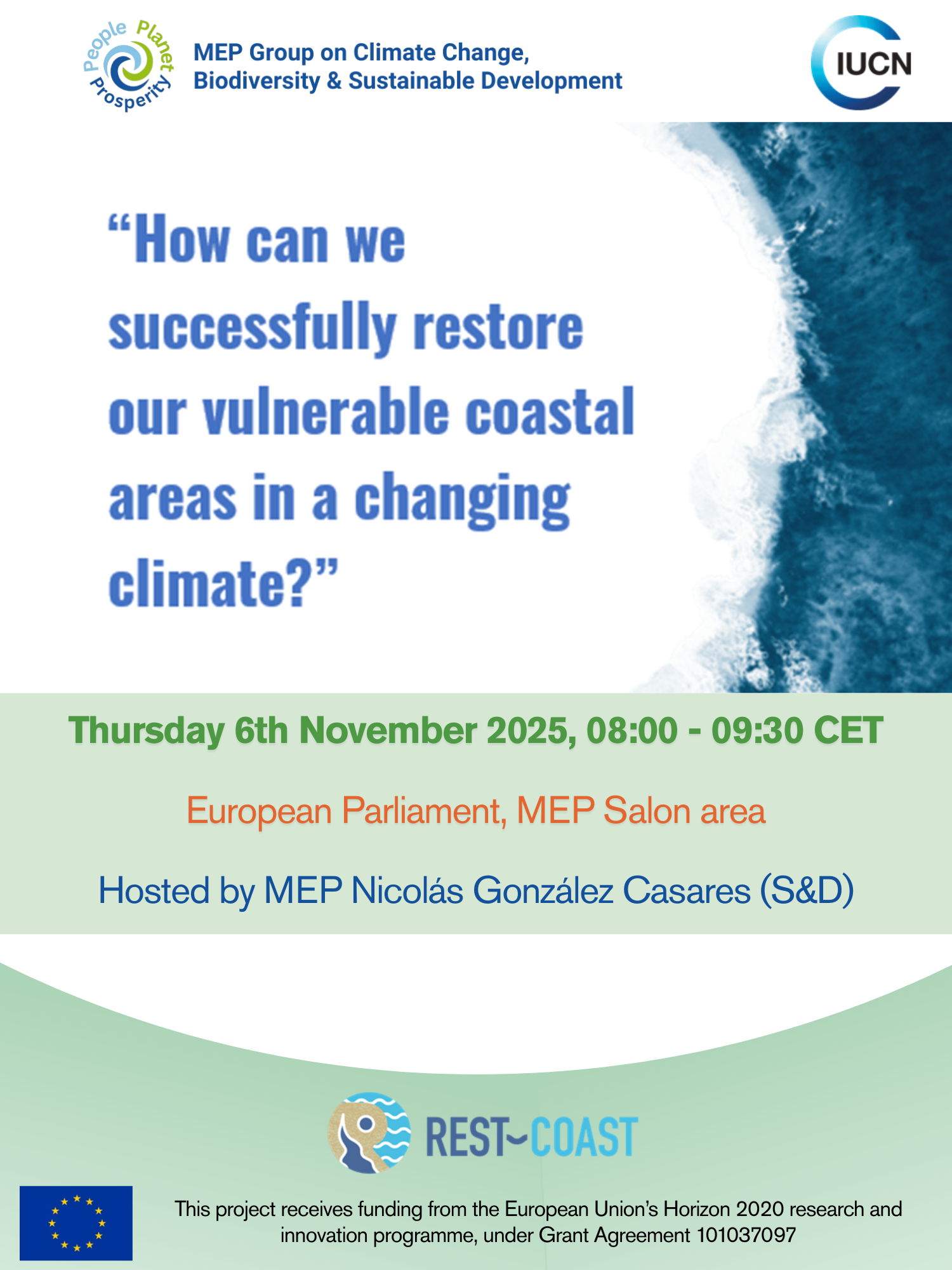
How can we successfully restore our vulnerable coastal areas in a changing climate?
Thursday 6th November 2025 at 08:00 – 09:30 CET – Organised at the European Parliament, Brussels (MEP Salon area)
Coastal ecosystems play an invaluable role in maintaining biodiversity and climate resilience, as well as providing essential ecosystem services that support communities and economies. However, they are under increasing threat from rising sea levels, erosion, habitat degradation and extreme weather events. Furthermore, these pressures are expected to intensify due to the triple planetary crisis of climate change, biodiversity loss and pollution.
In this context, strong, coherent and integrated policy frameworks are essential for scaling up coastal restoration and meeting EU and international commitments. A significant milestone was reached in 2024 with the adoption of the EU Nature Restoration Regulation (NRR), which establishes legally binding restoration targets for degraded ecosystems across Member States, including coastal and marine areas. Member States are now required to develop National Restoration Plans, outlining how they intend to meet these targets. Meanwhile, COP30 in Belém, Brazil, provides an important opportunity to reinforce the global commitment to climate action and align restoration efforts with the climate objectives of the Paris Agreement.
This timely event will explore how coastal restoration can be elevated within national and EU policies to deliver on climate and biodiversity objectives. With a focus on developing Nature Restoration Plans (NRPs), the discussion will highlight opportunities to embed coastal resilience within broader environmental and climate strategies in the lead-up to COP30.
Bringing together EU policymakers, national representatives, and experts, the session will examine how frameworks such as the NRR, the Paris Agreement, and the Kunming-Montreal Global Biodiversity Framework can be better aligned to support effective, large-scale coastal restoration. The session will also identify recommendations to ensure policy coherence, enhance implementation and promote restoration as a key strategy for climate adaptation and biodiversity recovery in coastal areas.
The REST-COAST project, part of the so-called Green Deal Restoration Cluster, has produced several policy outputs aimed at informing policymakers on best practices for coastal ecosystem restoration. Particular attention was given to the EU policy processes and key relevant multilateral environmental agreements, such as the UNFCCC and the Regional Seas Conventions. This event is held within the framework of REST-COAST Work Package 5, focused restoration-supportive governance that better integrates policies and mechanisms for large scale coastal restoration.
Final agenda
09:20 – 09:30 | Closing remarks by Pilar Marín Cabeza, Marine and Coastal Project Officer, IUCN Centre for Mediterranean Cooperation
Click here to see speaker presentations
Click here for the full concept note